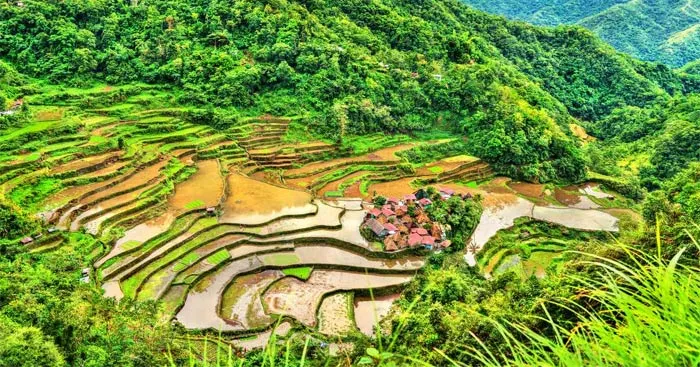Soạn Looking Back Unit 10 lớp 10 Global success là tài liệu vô cùng hữu ích giúp các em học sinh có thêm nhiều gợi ý tham khảo để giải các câu hỏi trang 118 bài Ecotourism được nhanh chóng và dễ dàng hơn.
Bạn đang đọc: Tiếng Anh 10 Unit 10: Looking Back
Tiếng Anh 10 Global success Unit 10 Looking Back được trình bày cẩn thận, giải thích chi tiết, rõ ràng kèm bản dịch, nhằm cung cấp cho bạn đọc đầy đủ kiến thức theo bài. Qua đó các bạn hiểu sâu sắc nhất những nội dung kiến thức quan trọng và chuẩn bị bài tốt trước khi đến lớp. Ngoài ra các bạn xem thêm File nghe tiếng Anh 10 Global success.
Giải tiếng Anh 10 Unit 10: Looking Back
Vocabulary
Choose the correct word to complete the conversation.
(Chọn từ đúng để hoàn thành đoạn hội thoại.)
Mai: Ms Hoa, what is (1) mass / sustainable tourism?
Ms Hoa: Well, the aim of this kind of tourism is to (2) protect / damage the environment, respect local culture, and keep (3) benefits / profits local.
Mai: Can you give me an example?
Ms Hoa: When travelling, we should not (4) litter / impact on the street. We should also be (5) aware / responsible of the local traditions and respect them.
Mai: So is this kind of tourism similar to (6) ecotourism / mass tourism ?
Ms Hoa: Well, it’s a form of sustainable tourism because it has a positive (7) impact / craft on the environment.
Gợi ý đáp án
|
1. sustainable |
2. protect |
3. profits |
4. litter |
|
5. aware |
6. ecotourism |
7. impact |
|
Mai: Ms Hoa, what is (1) sustainable tourism?
(Thưa cô Hoa, du lịch bền vững là gì)
Ms Hoa: Well, the aim of this kind of tourism is to (2) protect the environment, respect local culture, and keep (3) profits local.
(À, mục đích của loại hình du lịch này là bảo vệ môi trường, tôn trọng văn hóa địa phương và giữ lợi nhuận cho địa phương.)
Mai: Can you give me an example?
(Cô có thể cho con một ví dụ được không?)
Ms Hoa: When travelling, we should not (4) litter on the street. We should also be (5) aware of the local traditions and respect them.
(Khi đi du lịch, chúng ta không nên xả rác ra đường. Chúng ta cũng nên biết về các truyền thống địa phương và tôn trọng chúng.)
Mai: So is this kind of tourism similar to (6) ecotourism?
(Vậy loại hình du lịch này có giống với du lịch sinh thái không ạ?)
Ms Hoa: Well, it’s a form of sustainable tourism because it has a positive (7) impact on the environment.
(À, đó là một hình thức du lịch bền vững vì nó có tác động tích cực đến môi trường.)
Pronunciation
Work in pairs. Role-play the conversation above. Try to use appropriate intonation.
(Làm việc theo cặp. Nhập vai vào đoạn hội thoại trên. Cố gắng sử dụng thành phần thích hợp.)
Grammar
Put the verbs in brackets in the correct forms.
(Chia dạng đúng các động từ trong ngoặc.)
1. If I (be) ______ you, I (live) ______ with a host family so that I can learn more about the local culture.
2. If we (work) ______ together, we (be) ______ able to reduce the negative impact of tourism on the environment.
3. If we (allow) ______ more people to crowd the city centre, we (have) ______ to deal with environmental pollution in the future.
4. If we (have) ______ enough money, we (go) ______ on an ecotour to Finland. Instead, were staying in Viet Nam in the summer.
Gợi ý đáp án
|
1. were/was; would live |
2. work; will be |
3. allow; will have |
4. had; would go |

